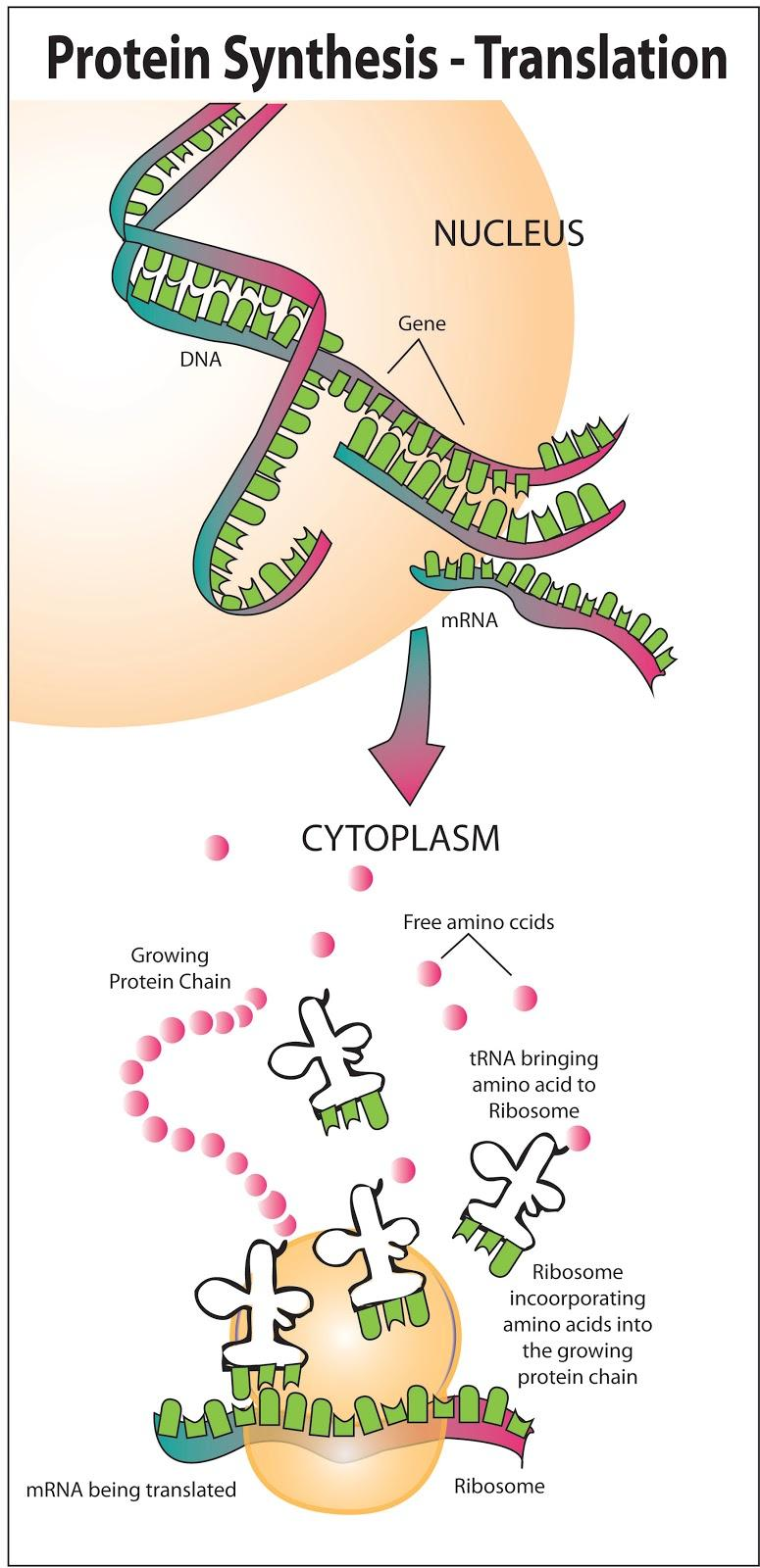
What is the second step of protein synthesis?
Answer
524.4k+ views
Hint: The protein synthesis occurs through the process of translation. It involves the conversion of the amino acids into the RNA which with the help of various other enzymes will result in the formation of the proteins and thus become a part of the central dogma.
Complete answer:
The translation of the process of the protein synthesis where the sequences of the messenger mRNA that were produced during the process of transcription were translated into the amino acids to produce proteins. This process is termed as the gene expressions, or also known as gene regulation that occurs in the ribosomes. They help in the formation of the polypeptide chains from amino acids and results in the production of the activated proteins. These proteins are responsible for the functioning and regulation of the cells.
Translation occurs in three steps:
1) Initiation - It is the starting of the translation process where the ribosomes are attached to tRNA, this tRNA will be first attached to the start codon.
2) Elongation - The ribosomes constitute small and large subunits. The small ribosomal unit and the tRNA molecules attach together and carry the amino acids to the large ribosomal unit. Then again the small ribosomal unit will bind to another tRNA molecule. Again after binding at the tRNA, the amino acid chain will be formed and the cycle continues. This process requires energy in the form of GTP that also helps in the binding of the tRNA;s amino acids to the ribosomal subunits. The ribosomal movement from one point to another also occurs due to the presence of GTP.
3) Termination - It is the last stage of the translation process. In this stage, at the site of translation, the stop codon attaches and results in the release of one polypeptide chain of the amino acids from the ribosomes.

Note:
Ribosomes are tiny particles of ribonucleoprotein, which serve as the factories of protein production. Ribosomes are of two types based on the advancement, one is prokaryotic and the other type is eukaryotic. They undergo the process of transcription and result in the formation of the proteins thus are said to be the main site for the protein synthesis. They also act as an enzyme complex.
Complete answer:
The translation of the process of the protein synthesis where the sequences of the messenger mRNA that were produced during the process of transcription were translated into the amino acids to produce proteins. This process is termed as the gene expressions, or also known as gene regulation that occurs in the ribosomes. They help in the formation of the polypeptide chains from amino acids and results in the production of the activated proteins. These proteins are responsible for the functioning and regulation of the cells.
Translation occurs in three steps:
1) Initiation - It is the starting of the translation process where the ribosomes are attached to tRNA, this tRNA will be first attached to the start codon.
2) Elongation - The ribosomes constitute small and large subunits. The small ribosomal unit and the tRNA molecules attach together and carry the amino acids to the large ribosomal unit. Then again the small ribosomal unit will bind to another tRNA molecule. Again after binding at the tRNA, the amino acid chain will be formed and the cycle continues. This process requires energy in the form of GTP that also helps in the binding of the tRNA;s amino acids to the ribosomal subunits. The ribosomal movement from one point to another also occurs due to the presence of GTP.
3) Termination - It is the last stage of the translation process. In this stage, at the site of translation, the stop codon attaches and results in the release of one polypeptide chain of the amino acids from the ribosomes.

Note:
Ribosomes are tiny particles of ribonucleoprotein, which serve as the factories of protein production. Ribosomes are of two types based on the advancement, one is prokaryotic and the other type is eukaryotic. They undergo the process of transcription and result in the formation of the proteins thus are said to be the main site for the protein synthesis. They also act as an enzyme complex.
Recently Updated Pages
Master Class 12 Economics: Engaging Questions & Answers for Success

Master Class 12 Physics: Engaging Questions & Answers for Success

Master Class 12 English: Engaging Questions & Answers for Success

Master Class 12 Social Science: Engaging Questions & Answers for Success

Master Class 12 Maths: Engaging Questions & Answers for Success

Master Class 12 Business Studies: Engaging Questions & Answers for Success

Trending doubts
Which are the Top 10 Largest Countries of the World?

What are the major means of transport Explain each class 12 social science CBSE

Draw a labelled sketch of the human eye class 12 physics CBSE

Why cannot DNA pass through cell membranes class 12 biology CBSE

Differentiate between insitu conservation and exsitu class 12 biology CBSE

Draw a neat and well labeled diagram of TS of ovary class 12 biology CBSE




